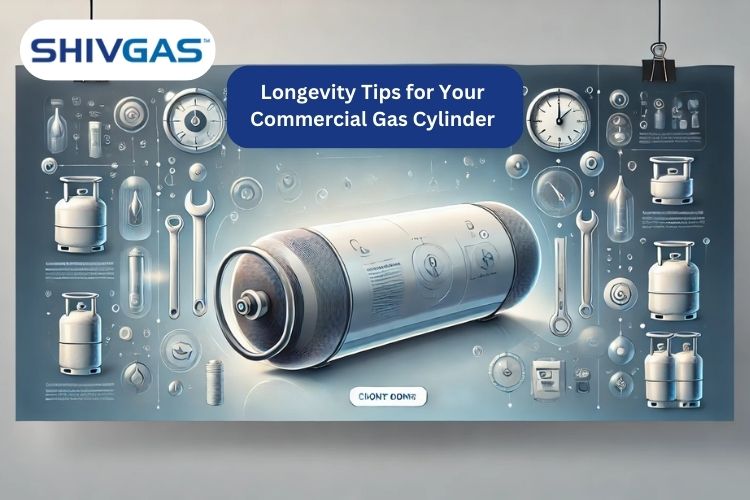
Your gas cylinder is the quiet workhorse of your business. It doesn’t demand attention, yet it powers the things that matter most—whether it’s cooking up delicious meals, keeping machines running, or even supporting life-saving operations.
But like any hardworking tool, your cylinder needs a little TLC to keep going. A little effort now can save you from costly repairs, replacements, or worse—dangerous accidents. So, how do you ensure your commercial gas cylinder lasts as long as possible?
Let’s keep it simple, practical, and real.
It all begins with making the right choice. You wouldn’t buy a sports car to haul heavy loads, right? The same logic applies here.
Make sure your cylinder is designed for the gas you’re using. For example, propane works best with corrosion-resistant materials, while oxygen cylinders need extra safety features. Look for certifications (like ISO or BIS) that guarantee quality.
Choosing the right commercial gas cylinder is like finding the right pair of shoes. Get it wrong, and you’ll regret it every step of the way. Get it right, and you’re set for years of reliable service.
Gas cylinders might look tough, but they’re more fragile than you think. A careless drop or a little rust can shorten their lifespan—and create risks you don’t want to deal with.
Here’s the golden rule: treat it like you would a fragile piece of equipment.
Think of your cylinder like a trusted coworker. Handle it with respect, and it’ll never let you down.
Start your journey with LPG dealership today!
Your cylinder’s environment matters. Where you store it can make all the difference in how long it lasts.
Here’s what a good “space” looks like:
Think of it like this: if you wouldn’t live there, your commercial gas cylinder shouldn’t either.
Your gas cylinder has a story to tell—you just have to pay attention. Regular inspections help you catch small problems before they become big (and expensive) ones.
What to look for:
A quick once-over every few weeks can save you a lot of stress (and money) later.
Gas cylinders are built to handle pressure, but there’s a limit. Overfilling or ignoring pressure levels is like overloading an elevator—it might work for a while, but it’s risky and shortens its life.
Managing pressure isn’t complicated, but it’s crucial. Think of it as giving your commercial gas cylinder a little breathing room.
Some things are best left to professionals, and your cylinder’s maintenance is one of them. Regular checkups can uncover issues you might miss on your own.
What they’ll do:
A gas leak is like a pothole on the road. If you ignore it, it only gets worse. Worse, it can lead to accidents or wasted gas.
Here’s how to deal with a suspected leak:
Leaks can seem scary, but catching them early keeps them manageable.
If you’re not the only one handling the cylinders, make sure everyone on your team knows how to care for them.
The more everyone knows, the safer and longer-lasting your cylinders will be.
Regulators, hoses, and caps might seem like extras, but they’re actually essential. Think of them as your cylinder’s armor.
Good accessories are like good insurance. They don’t just protect your cylinder; they protect your business.
No commercial gas cylinder lasts forever. Over time, wear and tear will take their toll, no matter how careful you are.
When to replace:
Replacing a cylinder might feel like a hassle, but it’s a small price to pay for safety and peace of mind.
At SHIVGAS, we understand the importance of a dependable gas supply for your business operations. As a trusted supplier of domestic, commercial and industrial gas cylinders, we prioritize quality, safety, and efficiency to meet your unique needs.
With SHIVGAS, you can:
Choose SHIVGAS for a seamless and secure gas supply experience.
Contact us today to power your business with the reliability you deserve!
Your commercial gas cylinder isn’t just a piece of equipment. It’s a partner in your business, working hard behind the scenes to keep things running smoothly. Treat it with the care it deserves, and it’ll serve you well for years.
With the right attention—proper handling, regular maintenance, and a watchful eye—you can extend its life, improve its safety, and save yourself a lot of stress.
So, next time you look at your gas cylinder, remember: it’s not just a tank. It’s the silent hero of your operation. And like any hero, it needs someone to have its back.
Yes, it is generally safe to use a year old cylinder. While LPG gas itself doesn’t expire, the cylinder has an expiration date. Using it after the due date may increase safety risk.
You need to replace a cylinder, if it has excessive rust, deep dents, or damaged valves. If it has crossed its expiry/retesting date even if it appears fine, you should consider replacing it.
Yes. Overfilling or ignoring pressure levels can weaken the cylinder walls, increase the risk of leaks or explosions, and shorten its lifespan. Always follow what limit the manufacturer has recommended.
The most common method is the soap bubble test. Apply soap water to the valve and joints, and if bubbles form, there’s a leak. If suspected, move the cylinder to a ventilated space and call a professional immediately.
If you want extend the life of your cylinder, here are few things you can do:
Comment (0)